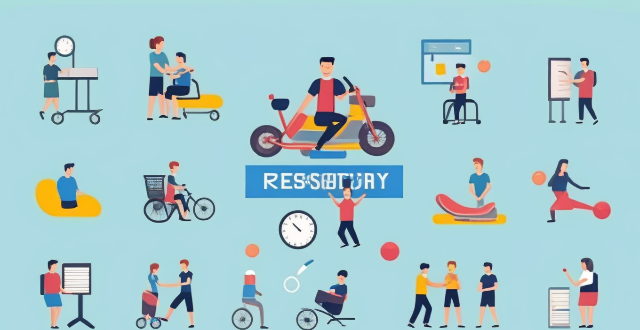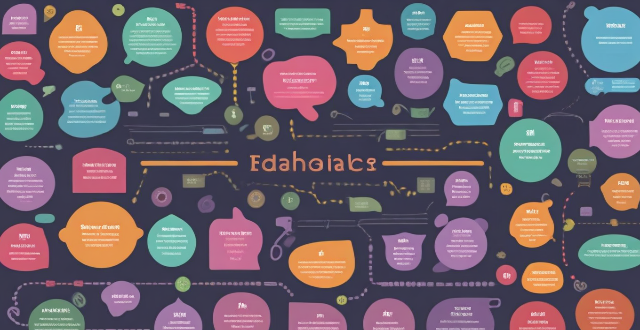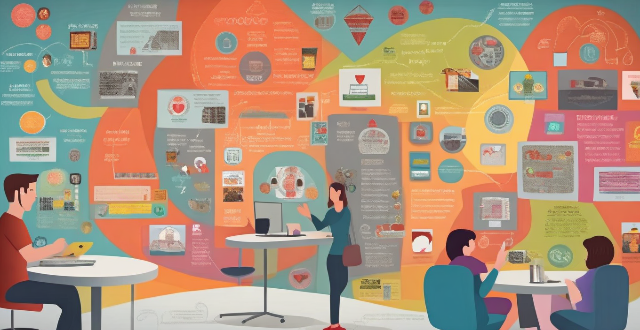Living Spending

How do economic indicators reflect the standard of living in a country ?
Economic indicators such as GDP, income distribution, employment rates, healthcare and education spending, housing affordability, and inflation rates are used to gauge the standard of living in a country. These metrics provide insights into economic performance and health, reflecting aspects like access to education, healthcare, housing, employment opportunities, and consumer goods. A higher GDP per capita, lower Gini coefficient values, higher employment rates, greater healthcare and education spending, affordable housing, and stable or low inflation rates generally indicate a better standard of living. However, these indicators should be considered collectively for a comprehensive understanding of the economic conditions that influence citizens' lives.

How does tax planning affect a country's economy ?
Tax planning is a crucial component of any country's fiscal policy, as it affects various aspects of the economy, including government spending, investment decisions, and consumer behavior. Increased tax revenue can lead to higher government spending in critical sectors like healthcare and education, which can improve living standards and stimulate economic growth. Tax incentives can encourage businesses to invest in areas aligned with economic objectives, leading to job creation and technological advancements. Additionally, tax planning can influence consumer behavior by affecting prices, discouraging consumption of certain products, and promoting responsible spending habits. Overall, effective tax planning is essential for fostering economic growth, enhancing living standards, and promoting sustainable development.

How do economic recessions and downturns affect consumer spending on sports-related activities and products ?
Economic recessions significantly impact consumer spending on sports-related activities and products, affecting various aspects of the industry. Reduced disposable income leads to budget cuts and prioritization of basic needs over leisure activities. Changes in consumer behavior include seeking value-oriented options and DIY approaches to sports participation. Decreased ticket sales, cancellations/rescheduling of events, reduced sales of sports goods, and bargain hunting are common during economic downturns. Gym memberships may be canceled in favor of free or lower-cost alternatives, and investment in fitness technology could suffer. Fewer trips for sports tourism and a rise in localized activities are also likely. Sponsorships and advertising revenue may decrease, leading to job losses and wage stagnation across the sports industry. Long-term effects include recovery time and shifting habits formed during recessions. As economies recover, the sports industry must adapt to these changes and find innovative ways to attract consumers back to their venues.

How do smart home gadgets enhance the experience of elderly living alone ?
Smart home gadgets offer numerous benefits for elderly individuals living alone, including improved safety and security, increased independence and convenience, better health management, and enhanced social interaction. These devices can help address concerns such as access control, unusual activity detection, task assistance, automatic lighting, floor cleaning, vital sign monitoring, weight tracking, medication reminders, video calling, social media engagement, and entertainment streaming services. As technology advances further, we can expect more innovative solutions tailored specifically to the needs of elderly individuals living alone.

Can you explain the concept of a living building in the context of ecological design ?
The text introduces the concept of a "living building" in ecological design, emphasizing sustainable materials, energy efficiency, and water conservation. It outlines key features such as using renewable and non-toxic materials, maximizing natural light and ventilation, and promoting biodiversity through green spaces. Benefits include reduced environmental impact, long-term economic savings, improved health for occupants, and enhanced social interaction. The text concludes that living buildings offer significant advantages for people and the planet, suggesting their increasing importance in future built environments.

How does regular exercise impact the social well-being of seniors living alone ?
Regular exercise is crucial for enhancing the social well-being of seniors living alone, as it improves mood and mental health, increases social interaction, enhances cognitive function, and reduces the risk of chronic diseases. Engaging in regular exercise can help seniors maintain their independence and improve their overall quality of life.

What are the advantages and disadvantages of living in a multicultural society ?
Advantages and Disadvantages of Living in a Multicultural Society The advantages of living in a multicultural society include cultural diversity, enhanced understanding and tolerance, economic benefits, language learning, and social inclusivity. These benefits enrich daily life by exposing individuals to different ways of thinking, art forms, cuisines, and festivals, fostering greater understanding and acceptance of others, attracting a skilled global workforce, providing natural opportunities to learn new languages, and promoting better access to education, healthcare, and other social services for all members of the community. However, living in a multicultural society also has its disadvantages, such as cultural conflict, integration challenges, identity confusion, potential for segregation, and policy challenges. Differences in cultural values and norms can sometimes lead to misunderstandings and conflicts, newcomers might face challenges integrating into the mainstream culture, individuals may struggle with their sense of identity, communities might form based on shared ethnicity or language reducing interaction between different groups, and managing a multicultural society requires complex policy-making to address the needs of diverse populations. Overall, living in a multicultural society requires thoughtful management and open-mindedness to navigate the complexities of diverse populations successfully while enjoying the benefits it brings.

What is the difference between a living will and a durable power of attorney ?
Living wills and durable powers of attorney (DPAs) are vital estate planning tools with distinct purposes. A living will outlines medical treatment preferences, becoming effective only under specific health conditions, while a DPA grants broad financial and legal authority to an agent, typically effective immediately and continuing through incapacity. Both documents can be revoked by the creator if mentally competent but function differently upon incapacity. It is crucial to consult with an estate planning attorney for proper execution according to state laws.

How often should I review and adjust my budget ?
Regular budget reviews are essential for maintaining financial health, helping to align spending with evolving goals, adjust for unexpected expenses, and account for inflation. Conduct monthly, quarterly, and annual reviews to monitor cash flow, analyze spending patterns, and make necessary adjustments. Focus on income vs. expenses, debt management, savings goals, emergency funds, subscription services, and bill negotiation. After each review, adjust spending, increase savings, revisit goals, improve cash flow, and seek professional advice as needed.

How can I avoid impulse buying and stick to my budget ?
Impulse buying is a common problem for many people, but there are strategies you can use to avoid it and stick to your budget. Creating a budget, setting financial goals, using cash instead of credit cards, avoiding temptation, and practicing mindful spending are all effective ways to control your spending and achieve your financial objectives. By implementing these strategies, you can take control of your finances and make progress towards your long-term goals.

How can I avoid overspending during the discount season ?
During the discount season, it's important to avoid overspending. Here are some tips: set a budget, make a list of desired items, research prices, use cash or debit cards, avoid impulse buys, and shop online for better deals. By following these steps, you can enjoy discounts without overspending.

What are the best practices for teaching children about money management and savings ?
Teaching children about money management and savings is an essential life skill that can help them develop good financial habits. Here are some best practices for teaching children about money management: 1. Start early: Even toddlers can understand basic concepts like saving and spending. Use everyday opportunities to talk about money and its value. 2. Lead by example: Children learn by example, so it's important to model good financial habits yourself. Show them how you budget, save, and make decisions about spending. 3. Use allowances wisely: Giving your child an allowance is a great way to teach them about money management. Encourage saving, teach spending, and introduce giving as part of their allowance. 4. Play money games: Board games and online games can be fun and educational at the same time. Some popular ones include Monopoly, The Game of Life, and PiggyBot. 5. Involve them in family finances: Involving your children in family finances can help them understand the real-world implications of money management. Have them help you create a budget, go grocery shopping with you, and talk to them about bills and expenses. Remember to be patient, consistent, and positive when teaching children about money management and savings. With these best practices, your child will develop good financial habits that will serve them well throughout their life.

How do I make restaurant-quality meals at home without spending too much ?
To make restaurant-quality meals at home without spending too much, start by planning your meals and shopping smart. Prep ingredients in advance and master basic cooking techniques. Invest in good kitchen tools and create the right ambiance to enhance the dining experience. Remember that practice makes perfect, so keep trying new recipes and learning from mistakes. By following these steps, you can enjoy delicious, affordable meals at home.

How do smart living gadgets contribute to energy efficiency in homes ?
Smart living gadgets play a significant role in enhancing energy efficiency in homes. They automate and optimize household operations, resulting in reduced energy consumption and lower utility bills. Smart thermostats allow remote control of heating and cooling systems, while smart light bulbs can be controlled remotely and set to turn on/off automatically. Smart plugs and power strips monitor and control power consumption of appliances, reducing standby power waste. Smart water heaters optimize hot water production based on demand, reducing unnecessary energy consumption. Adopting these devices can help homeowners reduce energy consumption, lower utility bills, and contribute to a more sustainable future.

What are the health risks associated with living near a communication base station ?
Living near a communication base station, such as a cell tower or a radio mast, has raised concerns about potential health risks. While the scientific evidence is still being debated, there are several possible health effects that have been suggested by some studies and expert opinions. Here are some of the key health risks associated with living near a communication base station: - Electromagnetic Radiation Exposure: Increased exposure to electromagnetic fields (EMFs) and possible long-term effects on health. - Sleep Disruption: Disrupted sleep patterns and chronic sleep deprivation leading to various health issues. - Stress and Anxiety: Heightened stress levels and mental health impacts due to concerns about EMF exposure. - Environmental Impact: Noise pollution and visual pollution affecting both human health and wildlife.

What are some good habits for green living while traveling ?
Adopting eco-friendly habits while traveling can help reduce your carbon footprint and contribute to sustainable tourism. Here are some good habits for green living while traveling: 1. Plan ahead by researching local recycling facilities, public transportation options, and eco-friendly accommodations. 2. Choose eco-friendly accommodations with energy-efficient lighting, water-saving showerheads, and recycling programs. 3. Use public transportation instead of renting a car or taking taxis to reduce greenhouse gas emissions and save money on transportation costs. 4. Bring reusable items such as water bottles, shopping bags, and utensils to reduce plastic waste while traveling. 5. Support local businesses by eating at locally owned restaurants, shopping at farmers' markets, and purchasing souvenirs made by local artisans. 6. Choose sustainable tourism activities that promote conservation and responsible tourism, such as guided nature walks and wildlife safaris. 7. Respect wildlife and nature by staying on designated trails, not littering, and not disturbing animals. 8. Save energy and water by turning off lights and electronics when not in use, taking shorter showers, and using energy-efficient appliances if available.

What kind of living conditions can we expect in a lunar base ?
Living on the Moon presents numerous challenges that must be addressed to create a sustainable environment for humans. These include dealing with low gravity, lack of atmosphere, limited water and food resources, waste management, power generation, and communication with Earth. Advancements in technology and scientific research are making it increasingly feasible to establish a lunar base, paving the way for future discoveries and expansion into space.

How can I maintain a clean and healthy living environment at home ?
Maintaining a clean and healthy living environment is crucial for family well-being. Tips include regular cleaning, proper ventilation, minimizing clutter, pest control, healthy eating habits, personal hygiene, waste management, and water conservation. These practices promote physical health, mental well-being, and overall happiness for the family.

What are the challenges of living in a multicultural society and how can they be overcome ?
Living in a multicultural society presents challenges like language barriers, cultural differences, and social isolation. Overcoming these involves strategies such as education, celebrating diversity, fostering inclusivity, building intercultural competence, and supporting identity development.

What are the psychological and social impacts of living in a world affected by global warming ?
Living in a world affected by global warming can have significant psychological and social impacts on individuals and communities, including increased stress and anxiety, changes in mood and emotional well-being, cognitive effects, changes in social dynamics, impacts on mental health services, and societal responses such as adaptation and collective action. These impacts highlight the urgent need for action to address climate change and support the well-being of those affected by its consequences.

How can I maintain my financial freedom once I achieve it ?
The text discusses strategies for maintaining financial freedom, including creating a budget and sticking to it, building an emergency fund, investing wisely, living below one's means, and continuously learning and growing. It emphasizes the importance of discipline, planning, and effort in sustaining financial independence.

What are the steps to achieving financial freedom ?
Achieving financial freedom is a multi-step process that involves defining personal goals, creating a budget, paying off debt, building an emergency fund, investing wisely, increasing income streams, living below one's means, and continuously educating oneself about personal finance strategies. This journey requires patience, persistence, and a commitment to long-term growth rather than short-term gains. By following these steps, individuals can work towards achieving the lifestyle they desire without relying on traditional forms of income such as a job.

How can we protect ourselves from radiation exposure during space travel or living on other planets ?
Radiation exposure is a significant concern for astronauts during space travel and for future settlers on other planets. Shielding, distance, time management, and medication and supplementation are effective ways to protect against radiation. Lead, concrete, and water are good shielding materials. Distance from the source of radiation reduces exposure. Time management involves limiting the duration of exposure. Antioxidants, amifostine, and melatonin may help protect against radiation damage by reducing oxidative stress and promoting DNA repair.

Do celebrities often sell their mansions after living in them for a short time ?
Celebrities often sell their mansions after residing in them for a short period due to various factors such as lifestyle changes, financial needs, market conditions, and public perception. Career transitions, personal reasons like marriage or starting a family, liquidity needs, tax implications, real estate market trends, timing the market, privacy concerns, and image management can all influence these quick sales. Notable cases include celebrities selling properties due to constant intrusions by the paparazzi, moving to more rural settings for personal retreats, or downsizing and simplifying their lifestyle after retirement. Media coverage of these events further highlights the occurrences.

What are some effective home cleaning hacks ?
The article provides a comprehensive list of cleaning hacks for different areas of the home, such as the kitchen, bathroom, living area, and laundry room. Each section includes various tips and tricks to make cleaning easier and more efficient. For example, in the kitchen, using baking soda and vinegar can help degrease the oven, while steam cleaning with vinegar can easily clean the microwave. In the bathroom, soaking the showerhead in vinegar can remove deposits, and hydrogen peroxide can be used to clean tile and grout. The article also suggests using natural ingredients like olive oil and lemon juice for furniture polish and saltwater spray for ironing clothes. By following these simple yet effective cleaning hacks, readers can maintain a clean and organized home without spending too much time on cleaning tasks.

How do inclusive policies benefit society as a whole ?
Inclusive policies are designed to promote equality, fairness, and social cohesion by eliminating barriers and discrimination. These policies benefit society as a whole by ensuring equal access to resources, services, and opportunities for all individuals regardless of their background, abilities, or circumstances. In addition to promoting equality and fairness, inclusive policies also enhance social cohesion by fostering a sense of belonging and mutual respect among different groups within society. This leads to reduced discrimination, increased tolerance, and strengthened community bonds. Inclusive policies also have positive economic outcomes by expanding the talent pool, reducing poverty, and stimulating consumer spending. Furthermore, these policies foster innovation and creativity by providing diverse perspectives, encouraging risk-taking, and promoting collaboration. Finally, inclusive policies can enhance a country's global competitiveness by attracting talent, improving international relations, and driving economic growth.

How do low-income countries tackle poverty and improve the living standards of their population ?
Tackling poverty in low-income countries requires a multifaceted approach that addresses various aspects of development. Some key strategies include investing in education, promoting economic growth through foreign investment and local industry development, addressing healthcare needs by providing access to primary care services and training healthcare workers, and empowering women and girls through education, gender equality initiatives, and support for women-led businesses. By adopting these approaches, low-income countries can work towards improving the living standards of their populations and breaking the cycle of poverty.